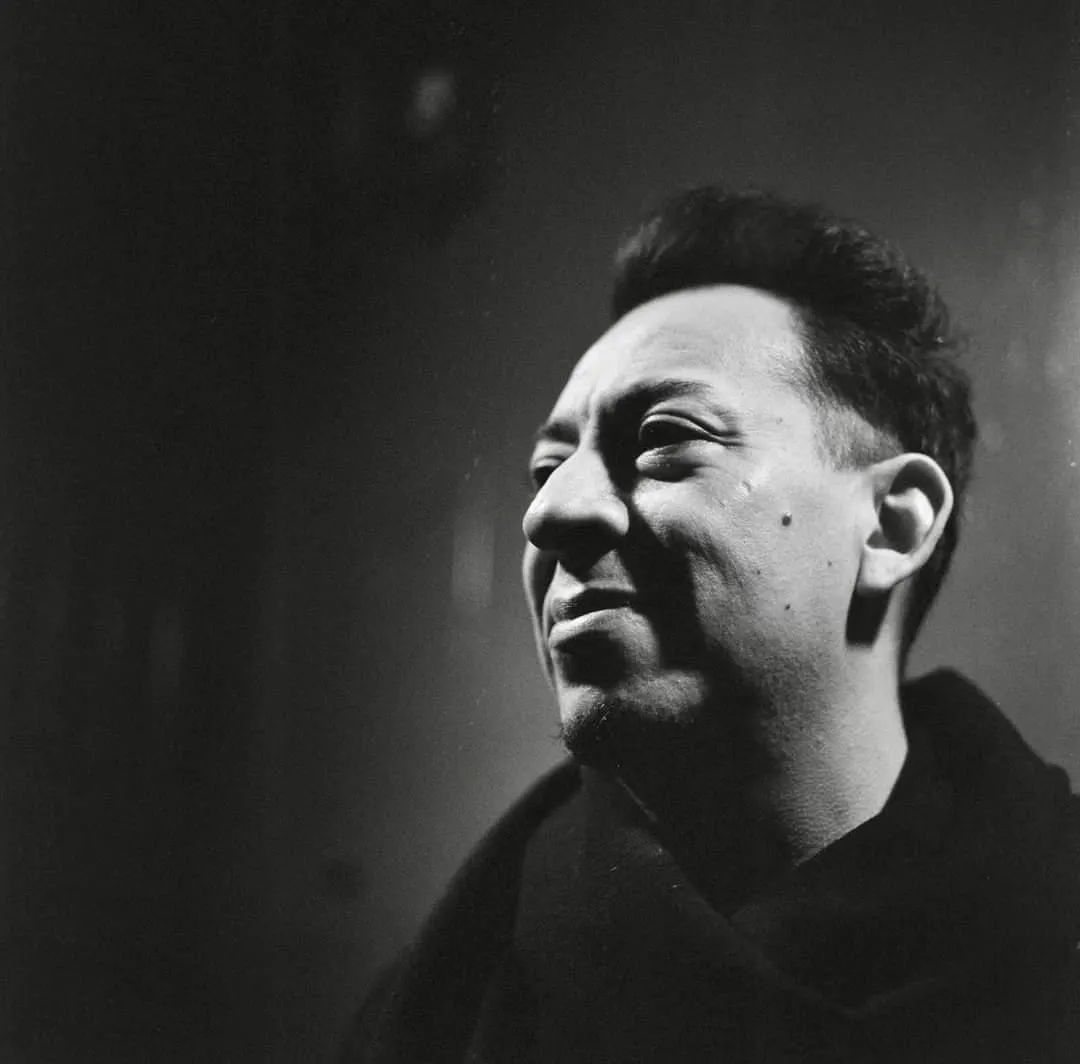For the longest time,
no one remembered how we were partners,
the Good Cop and Bad Cop of Yuletide,
a symphony of jingle bells and rattling chains
‘ere we drove out of sight.
How disturbed must they have been by the thought of me
looking over your shoulder and salivating
as you added children to the naughty list
for transgressions great and small.
You were the carrot,
oranges in the stocking,
presents under the tree,
half-eaten cookies as a reminder that you were there.
I was the stick,
birch branches in hand,
bathtub on my back,
my stew-pot bubbling in anticipation of fresh meat.
You were the red and green of holly and mistletoe,
I was the poison.
From the first,
I have been with them.
Born of the sands of Egpyt,
I was Abo Ragl Ma Slokha,
Man with the Burnt Leg,
bane of wicked tots.
Parents around the world would conjure me in story,
the Namahage,
le Croque-mitten,
Baba Yaga,
El Coco,
to keep their brats in line.
In their stories,
they always gave me horns,
yellow eyes,
a cloven hoof at the end of one leg,
a misshapen foot on the other,
my teeth sharp,
tongue so long it could reach them from under the bed
to taste their nightmares.
When I crossed the Alps, followed the Danube,
I found a new home under the Solstice moon.
As the fires of Yule cheer burned in the village squares,
I shouted my name so loud that every child would remember it,
whisper it to each other between shudders:
I
AM
THE
KRAMPUS!!!
When the willful boy or indolent girl came to a bad end
parents would remind the kinder:
Behave or the Krampus will come for you too.
When we first met, Santa Claus,
I thought you were there to kill me.
You came to my cave in regal glory.
Father Christmas! Jolly Old Saint Nick!
Your light washed away the darkness so I had no place to hide.
Trapped, I thought you were there to finally bring a gift
to those excluded as an annual tradition.
You cannot imagine my surprise when you extended your hand,
asked “won’t you ride my sleigh tonight?”.
You put me in chains as a precaution,
you still felt my wicked heart beat beneath my goatish chest,
but left me my bundle of sticks
because as you said: spare the rod, spoil the child.
Why does no one ever see the shadow behind your rosy cheeks?
Over the years, we brought so many children to goodness,
I rarely ate.
I did not mind,
I was able to drink in their fear like an elixir.
Then one foggy Christmas eve,
I noticed your sleigh was now driven by a broken buck with a freakish nose, your retinue filled out with polar bears drinking caramel-colored sugar water, the sack was filled with things never seen in your workshop before.
My eyes full of terrible wonder,
you leaned in,
smiled,
said one word: “Plastics“.
I did not like the sound of it.
As we flew over the city and marched down the streets,
your image was everywhere.
On billboards, in newspaper ads, on TV, in shopping malls.
I would have no part of this,
with sadness in your voice, you agreed: I would have no part of this.
You banished me back to the cave,
exiled into fading memory.
But I feel them pulling me back,
through of the Black Forest,
past the gingerbread house,
out of the fairy tales,
and into a cage.
They are corking my teeth,
dumping out my stew-pot,
reeling my tongue back in,
making me safe,
making me fun,
making me marketable.
It will not be long before I star in the limelight of cartoons,
baked into the shape of cookies,
imprisoned within wrapping paper.
When I am a triumph marched down 5th Avenue on Thanksgiving,
I will know they have checked me off their list,
now as gelded as Donner and Blitzen.
I see you up there on your sleigh,
and for the first time since we first met, Santa Claus,
the Krampus is afraid.
About the poem “Hooked Klaus” by The Klute
The Klute was arguably the most recognizable voice from Arizona during the poetry slam movement of the 1990’s – 2000’s. His early work is often humorous. Later in life, The Klute’s poetry took on a more serious tone, with the poet’s primary focus on increased awareness of ocean life. Today’s poem is a humorous poem, a parody of a serious poem by a slam poet from Utah, Jesse Parent.
Summary of “Hooked Klaus” by The Klute
“Hooked Klaus” is a dramatic monologue spoken from the perspective of Krampus, the dark folkloric companion to Santa Claus. The poem reimagines the traditional Good Cop/Bad Cop relationship between Santa and Krampus, portraying them as once-equal partners in shaping children’s behavior through reward and fear. Santa represents generosity, warmth, and moral incentive, while Krampus embodies punishment, terror, and consequence.
The speaker traces his ancient origins across cultures—Egyptian, European, and global—emphasizing that fear has always been a tool adults use to enforce obedience. When Santa enters his life, Krampus expects destruction but instead is recruited, chained but included, as part of a moral system that balances kindness with discipline.
The relationship fractures with the rise of modern consumer culture. Santa becomes a corporate icon, his sleigh filled with mass-produced goods and advertising slogans. Krampus refuses to participate and is exiled into obscurity. In the poem’s final movement, Krampus senses his return—not as a feared enforcer, but as a sanitized, commercial mascot. Stripped of menace and agency, he ends the poem afraid for the first time, watching Santa preside over a world where even fear itself has been domesticated and sold.
Analysis of “Hooked Klaus” by The Klute
At its core, “Hooked Klaus” is a critique of commercialization and cultural sanitization. The poem contrasts ancient, communal storytelling—where fear, consequence, and morality were intertwined—with modern consumer capitalism, which repackages even monsters into safe, profitable images. Krampus is not defeated by goodness but by branding.
The Good Cop/Bad Cop framing establishes a moral economy: children are shaped by both reward and punishment. The poem argues that Santa’s modern incarnation has abandoned balance in favor of endless indulgence, transforming morality into consumption. The chilling one-word revelation—“Plastics”—serves as a turning point, symbolizing artificiality, disposability, and the loss of craftsmanship, tradition, and meaning.
Krampus’s long catalog of global names and monstrous traits underscores his universality. He is not merely a villain but a necessary cultural function: the embodiment of consequence. His fear at the poem’s end is especially powerful because it reverses expectations. What terrifies Krampus is not eradication, but domestication—being rendered “safe,” “fun,” and “marketable.”
The poem’s final image, of Krampus gelded and paraded like Santa’s reindeer, delivers its sharpest indictment. Even rebellion, darkness, and myth are absorbed into spectacle. In this world, nothing remains sacred or dangerous; everything can be packaged.
Conclusion
“Hooked Klaus” blends folklore, satire, and cultural criticism into a darkly lyrical meditation on modern Christmas. By giving Krampus a voice, The Klute reframes him not as a monster, but as a casualty of consumerism. The poem suggests that when fear, discipline, and myth are stripped of their teeth, society may gain comfort—but lose depth, accountability, and meaning.
Discover more poetry inspired by Arizona HERE.









